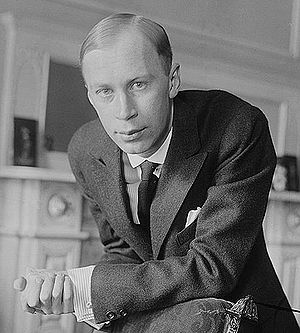Sergei Sergeyevich Prokofiev
Asst. Chair Choral Studies

- Title Asst. Chair Choral Studies
- Office 82 Bay State Road
- Email proko@bu.edu
- Phone 617-358-0609
Russian composer, pianist and conductor who mastered numerous musical genres and came to be admired as one of the greatest composers of the 20th century. (Alternative transliterations of his name include Sergey or Serge, and Prokofief, Prokofieff, or Prokofyev.)
Prokofiev was born in Sontsovka (now Krasnoye in Donetsk oblast), an isolated rural estate in Ukraine, then part of the Russian Empire. He displayed unusual musical abilities by the age of five. His first piano composition to be written down (by his mother), an ‘Indian Gallop’, was in the key of F Lydian (F major with a B natural instead of B flat) as the young Prokofiev felt ‘reluctance to tackle the black notes’. By the age of seven he had also learned to play chess. Much like music, chess would remain a passion his entire life, and he became acquainted with world chess champions Capablanca and Botvinnik.
At the age of nine he was composing his first opera, The Giant, as well as an overture and miscellaneous pieces.
In 1902, Prokofiev’s mother obtained an audience with Sergei Taneyev, director of the Moscow Conservatoire. Taneyev initially suggested that Prokofiev should start lessons in composition with Alexander Goldenweiser; however when Taneyev was unable to arrange this he instead arranged for Reinhold Glière to spend the summer of 1902 in Sontsovka teaching Prokofiev. This first series of lessons culminated, at Prokofiev’s insistence, with Glière supervising the 11-year-old’s first attempt to write a symphony. Glière subsequently revisited Sontsovka the following summer to give further tuition. Prokofiev, while giving due credit to Glière’s sympathetic qualities as a teacher, later complained that Glière had introduced him to “square” phrase structure and conventional modulations which he subsequently had to unlearn. Nonetheless, now equipped with the necessary theoretical tools, Prokofiev started experimenting with dissonant harmonies and unusual time signatures in a series of short piano pieces which he called “ditties” (after the song form they were based on), laying the basis for his own musical style.